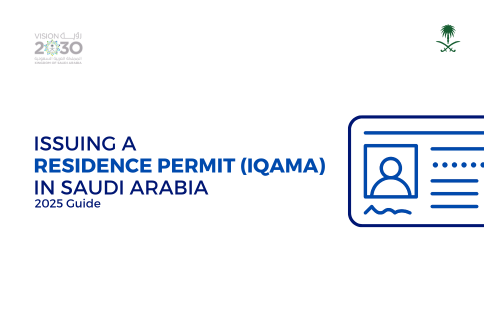Introduction
Starting a business in Saudi Arabia offers immense opportunities due to the Kingdom’s growing economy and investor-friendly policies. Whether you are a local entrepreneur or a foreign investor, understanding the requirements to start a business in Saudi Arabia is essential for a smooth setup. This guide covers the key steps, legal requirements, and necessary approvals for business registration in the Kingdom.

Choose the Right Business Structure
Before registering a business, you need to determine the appropriate legal entity. The most common business structures in Saudi Arabia include:
Limited Liability Company (LLC) – Ideal for small to medium enterprises.
Joint Stock Company (JSC) – Suitable for larger corporations.
Branch Office – For foreign companies expanding into Saudi Arabia.
Sole Proprietorship – For single-owner businesses.

Obtain an Investment License from MISA
Foreign investors must secure an investment license from the Ministry of Investment Saudi Arabia (MISA) to operate legally in the Kingdom. This allows 100% foreign ownership in certain sectors and streamlines business operations.

Register with the Ministry of Commerce (MOC)
To legally operate, businesses must be registered with the Ministry of Commerce (MOC). This process includes:
Choosing a unique trade name.
Drafting and notarizing the Articles of Association (AOA).
Obtaining a Commercial Registration (CR) certificate.

Secure Necessary Approvals and Permits
Depending on your industry, you may need approvals from various authorities:
Saudi Food and Drug Authority (SFDA) – For food, pharmaceuticals, and medical businesses.
Saudi Central Bank (SAMA) – For financial and insurance companies.
Ministry of Tourism (MT) – For hospitality businesses.
Ministry of Industry and Mineral Resources (MIMR) – For manufacturing and industrial projects.

Open a Corporate Bank Account
A corporate bank account in Saudi Arabia is required for financial transactions. Banks such as Al Rajhi, Riyad Bank, and Saudi National Bank (SNB) offer business banking solutions tailored to different business needs.

Register with the Zakat, Tax, and Customs Authority (ZATCA)
Businesses must register with ZATCA for tax compliance, which includes:
Value Added Tax (VAT) Registration (if annual revenue exceeds SAR 375,000).
Corporate Income Tax (CIT) and Zakat Compliance.

Obtain a Municipal License
A municipal license (Baladiya) is required for office, retail, or industrial space. This is obtained from the local municipality where your business operates.

Register with the General Organization for Social Insurance (GOSI)
If you plan to hire employees, registration with GOSI is mandatory for social security and labor law compliance.

Obtain a Work Visa and Iqama for Foreign Investors
Foreign business owners and employees need a work visa and Iqama (residency permit) from the Ministry of Human Resources and Social Development (HRSD).

Comply with Saudization (Nitaqat Program)
Companies must comply with Saudization policies, ensuring a percentage of the workforce consists of Saudi nationals. The required percentage depends on the business sector and size.
Conclusion
Starting a business in Saudi Arabia requires proper planning, documentation, and compliance with government regulations. By following these steps and meeting the necessary requirements, entrepreneurs and investors can successfully establish their business in the Kingdom. Explore requirements to start a business in Saudi Arabia



















